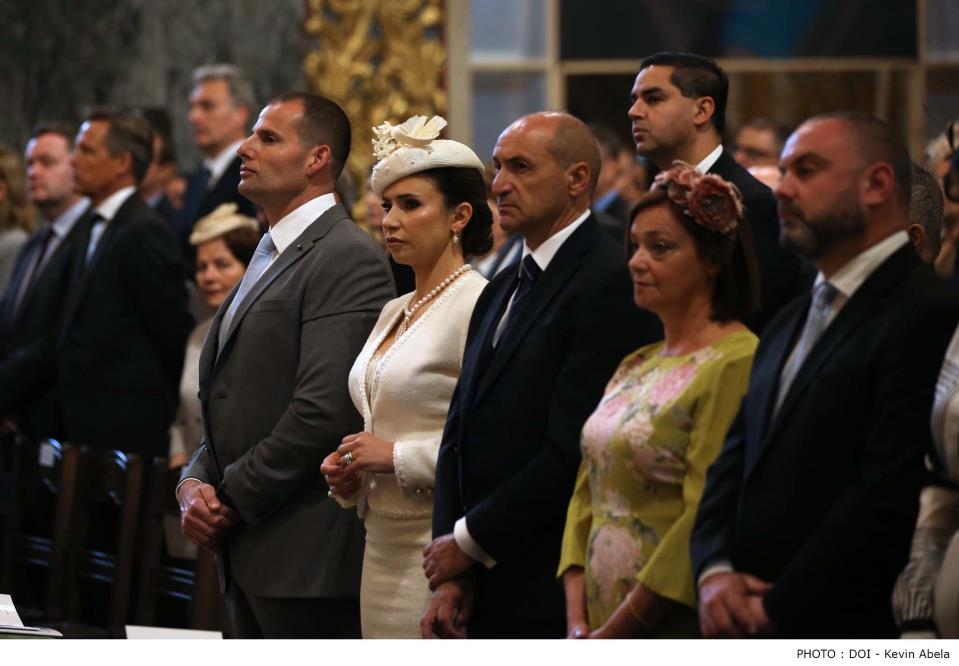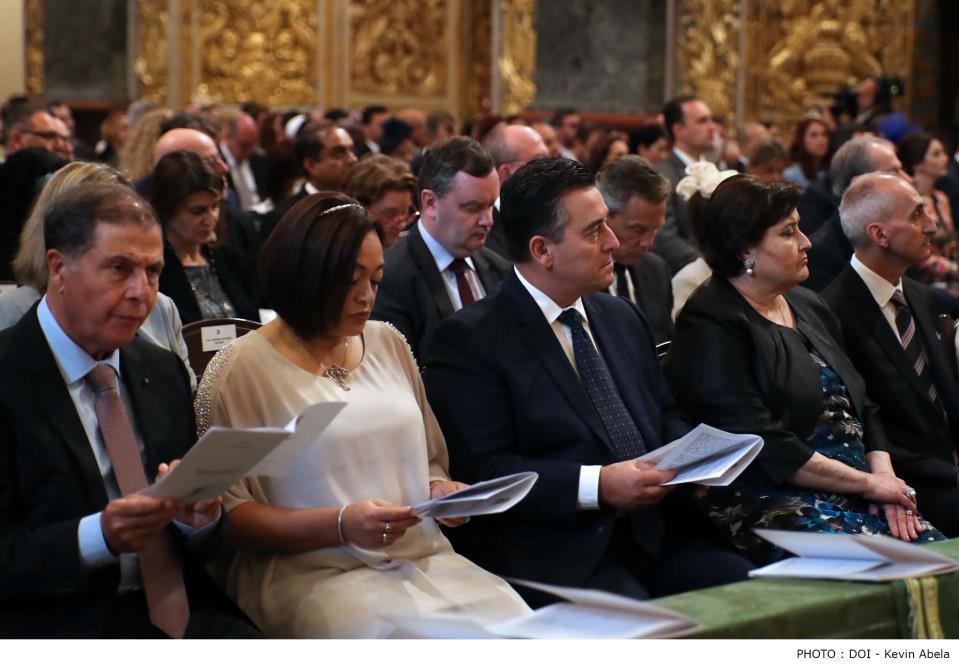Archbishop Charles Jude Scicluna said Saturday that Malta and its people need to work towards overcoming the tribal mentality of “you and us, them and us.”
Scicluna was delivering his homily during a ceremonial Mass of the Holy Spirit at St John’s Cathedral, which preceded the opening of the fourteenth legislature.
A new parliamentary term is officially being opened today.
Referring to the recent visit by Pope Francis and what he said in Malta, Scicluna noted the pontiff encouraged one and all to overcome a tribal mentality, although admittedly this is something which is not accomplished in one day.
“I hope that it will be accomplished in a century, but all of us, including myself, ought to work towards this in our daily lives here and now,” Scicluna said.
Scicluna quoted from the Acts of the Apostles and said to “let love be genuine; hate what is evil, hold fast to what is good; love one another with mutual affection; outdo one another in showing honour. Do not lag in zeal; be ardent in spirit; serve the Lord. Rejoice in hope; be patient in affliction; persevere in prayer. Contribute to the needs of the saints; pursue hospitality to strangers.
Bless those who persecute you; bless and do not curse them. Rejoice with those who rejoice; weep with those who weep. Live in harmony with one another; do not be arrogant, but associate with the lowly; do not claim to be wiser than you are. Do not repay anyone evil for evil, but take thought for what is noble in the sight of all. If it is possible, so far as it depends on you, live peaceably with all.”
He said that these words should be reflected upon to convey good wishes to each and every person who will be in parliament at the beginning of this important service to the nation, country and to the Republic.

“I wish you well in your work and may your endeavours be an expression of the political love that was proclaimed most prophetically by His Holiness Pope Francis in his encyclical letter Fratelli Tutti,” Scicluna said.
He recalled the visit of Pope Francis to Malta in April, and said to keep his message in mind about Malta’s heritage, and to truly be a laboratory of social justice, social peace and an example of sound social coexistence.
Scicluna cited Pope Francis’ words in which he said that although politics can be considered a “distasteful word” for some people, a world cannot function without it.
“We need politics and we need political parties made up of people with a determination to act,” Scicluna said.
Scicluna highlighted that Pope Francis also distinguishes between love ‘elicited’ out of a sense of urgency — someone falls ill in the street and you feel the urge to help, since charity is a virtue intrinsic to all and that we ought not to give up on, and you help the person — but there is also a ‘commanded’ love and charity.
He once again quoted Pope Francis who says that “it is an act of charity to assist someone suffering, but it is also an act of charity, even if we do not know that person, to work to change the social conditions that caused his or her suffering”.
In their message, both Pope Francis and Scicluna highlight that whilst one person can do an act of kindness, such as help an elderly cross a river, the politician is the one who has the power to build a bridge.
“Politics should not shy away from tenderness or from kindness,” Scicluna said.

Scicluna also noted that Pope Francis highlights a person's acts, saying that “at times, in thinking of the future, we do well to ask ourselves, ‘Why am I doing this? What is my real aim?’ For as time goes by, reflecting on the past, “the questions will not be: ‘How many people endorsed me? How many voted for me? How many had a positive image of me?’, but the real, and potentially painful questions will be, ‘How much love did I put into my work? What did I do for the progress of our people? What mark did I leave on the life of society? What real bonds did I create? What positive forces did I unleash? How much social peace did I sow? and What good did I achieve in the position that was entrusted to me?’”
Scicluna concluded his homily with words said by Pope Francis about Malta which “represents the rights and power of the ‘small’ nations, small but rich in history and civilisation that should lead toward another logic — that of respect and freedom — the logic of respect and also the logic of freedom, of the coexistence of differences, opposed to the colonisation of the most powerful”.
“I hope that through your commitment and dedication, Malta may continue to develop into an environment where we truly bear witness to respect and freedom, where we learn to live side by side despite our differences, and where our progress may truly be the promotion of the common good,” Scicluna said.